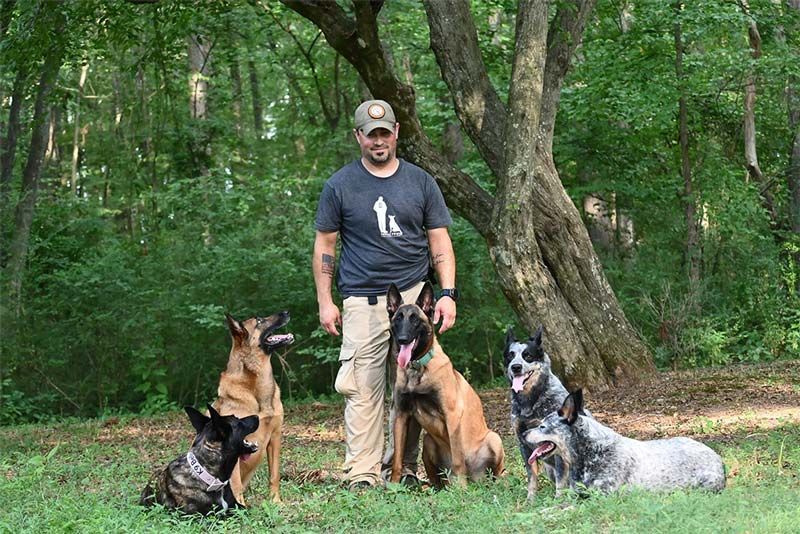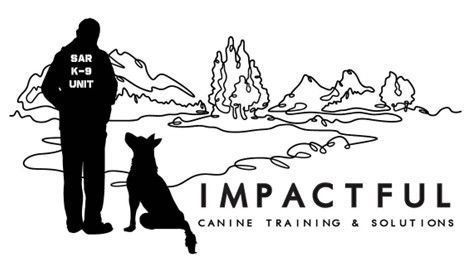What’s in Your Dog’s Bowl?: Feeding Fido Right
Impactful Canine Training received an average rating of 5.0 out of 5 Stars over from Google Reviews. 5.0 ★★★★★ Read Google Reviews.
Providing a proper diet for your dog is one of the most important aspects of ensuring its health and longevity. A well-balanced diet can support growth, maintain a healthy weight, strengthen the immune system, and improve overall well-being.
A Quick Guide to Understanding Proper Canine Diet and Specific Nutritional Needs
Essential Nutrients for Dogs
Just like humans, dogs require a balanced diet consisting of proteins, fats, carbohydrates, vitamins, and minerals. Each nutrient plays a unique role in maintaining the health of your dog:
-
Proteins are essential for growth, tissue repair, and muscle development. High-quality proteins, such as those from meat, fish, eggs, and certain plants, provide the necessary amino acids dogs need.
-
Fats are important for energy, skin and coat health, and cell function. Fats also help in the absorption of fat-soluble vitamins (A, D, E, and K). Look for animal-based fats like chicken fat or fish oil.
-
Carbohydrates , while not highly required for dogs, can benefit them when sourced from digestible options like rice, sweet potatoes, and oats for energy and fiber.
-
Vitamins and minerals are crucial for various bodily functions, including bone health, immune response, and metabolism. Your dog’s diet should contain vitamins like A, B, C, and D, along with minerals such as calcium, phosphorus, and zinc.
Types of Canine Diets
There are various feeding approaches that dog owners can consider, depending on their dog’s health, age, and preferences:
-
Commercial Dry Dog Food (Kibble) is the most common option. It is affordable, convenient, and long-lasting. When choosing kibble, look for high-quality brands that list meat as the first ingredient and avoid excessive fillers like corn and soy.
-
Wet Canned Food is often more palatable for picky eaters and has higher moisture content, making it beneficial for hydration. However, it can be more expensive and should be carefully portioned to avoid overfeeding.
-
Raw Diet (also known as BARF, or Biologically Appropriate Raw Food) consists of raw meats, bones, fruits, and vegetables. Advocates claim it promotes shinier coats, cleaner teeth, and improved energy. However, it requires careful preparation to avoid bacterial contamination and ensure a balanced nutrient intake.
-
Homemade Diets are another option for some dog owners. This approach allows complete control over ingredients but requires knowledge of canine nutrition to ensure meals are balanced. A veterinary nutritionist can help design a homemade diet plan.
Age-Specific Diets
Dogs’ nutritional needs vary by age, and feeding a puppy the same food as a senior dog could lead to imbalances.
-
Puppies require higher protein, fat, and calcium levels due to rapid growth. Puppy-specific foods are formulated to meet these needs. Puppies also need smaller, more frequent meals.
-
Adult dogs’ diets should focus on maintaining a healthy weight and providing sustained energy. Most adult dogs thrive on a balanced diet with moderate protein and fat content.
-
Senior dogs’ metabolism slows down as they age, and they become less active. Senior dog food formulas often contain fewer calories, higher fiber, and ingredients that promote joint health (like glucosamine and chondroitin).
Special Dietary Needs
Certain health conditions require dietary adjustments:
-
Overweight dogs need a high-protein, low-fat diet with controlled portion sizes. Including more fiber can help dogs feel fuller with fewer calories.
-
Dogs with allergies and sensitivities may require hypoallergenic diets or limited ingredient diets. Common allergens include beef, dairy, wheat, and chicken.
-
Dogs with kidney or liver disease may benefit from diets lower in protein and phosphorus to reduce the workload on these organs. Special prescription diets from veterinarians are typically required.
Portion Control and Feeding Schedule
Portion sizes depend on your dog’s size, activity level, age, and the type of food being fed. Overfeeding is a common issue, leading to obesity and related health problems. Always follow the feeding guidelines provided on commercial dog food packaging or consult with your vet for specific recommendations.
Most dogs do well with two meals a day, while puppies and very active dogs might need more frequent feeding. Consistent feeding times can help regulate your dog’s digestion and energy levels.
The Importance of Water
Fresh, clean water should always be available to your dog. Water is essential for digestion, circulation, temperature regulation, and nutrient absorption. Dehydration can quickly lead to serious health problems, so ensure your dog is drinking enough water, especially if they are on a dry kibble diet or live in a hot climate.
Foods to Avoid
Certain human foods can be toxic to dogs and should be avoided:
-
Chocolate contains theobromine, which is toxic to dogs.
-
Grapes and raisins can cause kidney failure in dogs.
-
Onions and garlic harm red blood cells, leading to anemia.
-
Xylitol, found in sugar-free gum and some candies and peanut butter, can cause a dangerous drop in blood sugar.
-
Cooked bones can splinter and cause internal injuries or blockages.
Consulting with a Veterinarian
Before making any significant changes to your dog’s diet, it’s always wise to consult with your veterinarian. They can provide guidance tailored to your dog’s breed, age, health status, and lifestyle.
Conclusion
A proper canine diet is one that is balanced, tailored to the dog’s life stage, and adjusted for any specific health concerns. By ensuring that your dog receives the right mix of nutrients, portion control, and access to clean water, you can promote long-term health, vitality, and happiness. Always be observant of any changes in your dog’s behavior or condition that may suggest dietary adjustments are needed. This comprehensive approach to feeding ensures that your furry friend will thrive for years to come.
Founder/Business Owner
Rick Markum
Rick Markum is a passionate dog trainer who blends professional working-dog experience and Search and Rescue handling to create balanced, effective training for dogs of all ages.
Search an article
Looking for something specific?
Recent Post
Let’s Train Together
Ready to Start Training?
Book a consultation and take the first step toward a calmer, happier dog.
Call us now:
SHARE THIS POST:

Rick Markum
Founder/Business Owner
Rick Markum is a dedicated dog trainer who combines his professional experience with working dogs and Search and Rescue handling to deliver balanced, effective training for dogs of every age.


